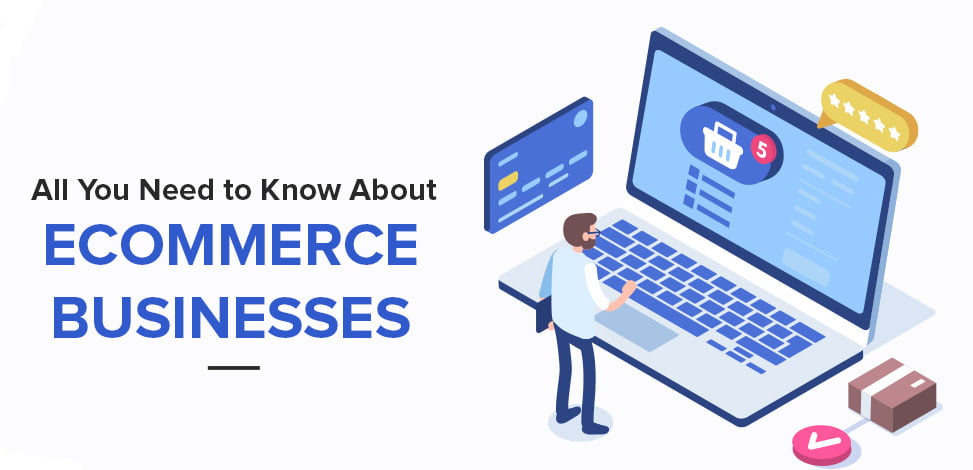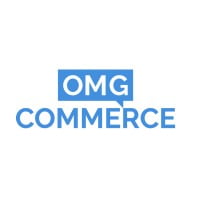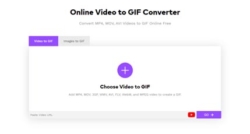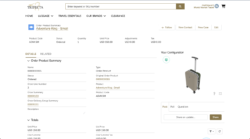With a foothold in the market and sales registering on your eCommerce platforms regularly, it can be easy to let your guard down: to assume your business will grow organically through repeat custom, visibility and engagement. Unfortunately, such hopes are misguided, and any market share you feel is secure will require careful strategy and planning in order for you to maintain and grow your business.
In this helpful article, you’ll discover how you can work and make informed decisions to not only hold on to the business you currently depend on, but scale up your services and product provisions to become a force within your chosen market.
Auditing Your Platforms
Most eCommerce businesses use more than one platform to sell their products. They know, like all expert online salespeople and businesspeople, that diversification is the key to finding increased portions of the eCommerce pie. So, whether you’re using software that enables you to sell on multiple platforms, or you’re simply uploading your products and your store onto a number of the most popular eCommerce websites, it’s time to take stock.
What’s working well, and where is there room for improvement? Where are you achieving the most sales, and what might that be? And – most importantly – are there any platforms that you’re selling on that are actually more expensive to run than the sales they generate; in other words, is it time to consolidate your sales? The alternative is that you’ll decide to map out your eCommerce growth upon all platforms – in which case, you’ll need to ensure that price changes, product launches, and other alterations to your provisions are synchronised in order not to alarm your customers and other consumers.
You Own Website
Meanwhile, your website is your unique and identifiable corner of the world wide web – the place that you sell from, with your branding, your brand name, and your business information stored all in one place. It’s here that many web users will come as repeat customers, confident in and comfortable with your brand. But it’s also on your website that first-time customers will make important and pivotal decisions about the trustworthiness of your brand and the quality of the products it promotes. In short, your website needs to be stunning to attract custom.
As such, if you’re planning on scaling up your eCommerce business, you should do so with a website that inspires confidence and excitement in its visitors. There’s no use marketing your brand and spending cash on bringing web users to your URL if they’re going to exit the tab within five seconds. No – you need to make sure your website is up to scratch in order to draw in the custom you’re looking for. Consider:
- Using the latest E-commerce website building solutions like Big Cartel
- Modernising your brand design and the design ethos of your website
- Making your site map more simple – by enabling click-throughs to payment in less than five clicks
- Showing recent or new products, most popular products, or sales products on your home page
- Partnering with better and more sophisticated eCommerce providers, who will be able to process different payment methods
- Making sure you’re delivering top-line descriptions, like your shipping policy, your refunds policy, and other notices consumers care about
Only with these factors taken into account with your revamp will you be able to continue attracting and seducing web users, transforming them into the customers whose purchases will help drive your growth.
Scaling Through Marketing
Now that your website is looking the part, it’s time to concentrate on digital marketing. The field of digital marketing has fluctuated and evolved over the past ten years – and is nearly unrecognisable from the early parts of this century. Now, you have a myriad of options to help you get your message, your brand, and your products out there to more people. Digital marketing techniques and strategies include:
- Email marketing – old and trustworthy, and great for encouraging repeat custom
- Content marketing – drawing web users onto your website with blog content
- Social media marketing – using Facebook, Instagram and Twitter to promote your business
- Programmatic marketing – whereby your adverts are placed on the screens of web users with data trails that match your chosen demographic
- Affiliate marketing – which uses partnerships with other stores and sites to mutually promote products
- YouTube Marketing – using multimedia videos to encourage another video-watching demographic
The list, undoubtedly, continues, and becomes more and more specialised as you explore your many options. What’s most important, though, is your ability to boost your SEO performance. If you do that, prospective consumers watching for products like yours are far more likely to find your website via search engines.
Boosting Your SEO
There are dozens of ways in which you can boost your SEO, and as this is a piece about scaling and not about marketing, we’ll keep this brief. Optimising your search engine results listings means finding the right combination of marketing materials and strategies to make your website or products finish at the very top of search results typed into search engines like Google’s. These rankings are determined by algorithms, and it’s these algorithms that you are able to manipulate and work around in order to boost your ranking on Google’s search results, harvesting thousands more clicks and hundreds more sales as a result. The extra cash, of course, will ensure you grow and reinvest in your business at the same time.
Investing in Scaling
While you may have initially invested in your website and your marketing, it’s time now to focus on your scaling itself. Put simply, scaling your business is all about striking the right balance between investing your profits in growth, and growing in order to find new markets, demographics, and profits. This is the combination that you seek – and if you manage to find the right balance, you’ll be able to enjoy sustainable growth – and you’ll be able to put into action your scaling plans.
Scaling Infrastructure
One of the most important things to remember when you’re scaling is that the extra sales, customer service requirements, complaints, contact points, returns and orders all add up to a great deal more work for your existing team. If you overstress your team, you’ll end up operating with a group of ‘burned-out’ and reluctant staff, who will make mistakes more regularly, and will consider leaving your business for one that’s less labour-intensive. Instead, you need to anticipate the extra work that your employees will soon be under pressure, and make sure your infrastructure can bear the extra strain.
To succeed in doing this, you will need to do a number of things. First, you need to scale your office space. Without that extra physical space to scale into, you’re going to get very crowded very quickly when bringing in extra key personnel. So, prepare by looking for London private offices online, and slowly working through listings to find the right location and square-footage to help your business scale into a new location with new staff and new ambitions.
Finding New Staff
Now you need to populate your new office, as your existing staff take more senior roles in your organisation – including onboarding new members and training them up to become superstars of your eCommerce site. But finding new staff to build up your business and scale up your trade can be difficult, depending on the skills you’re looking for.
In the short-term, it’s recommended that you look for short-term temporary-contract workers to help you with immediate staffing shortages. These come at a price: slightly more expensive than the average worker’s yearly wage – but you’ll be able to plug gaps in your workforce with immediate effect if you turn to an agency for qualified and vetted workers.
In the longer-term, you need to get some candidates in for interview, after carefully reviewing their CVs and cover letters. Look for those who you believe will stay with you for at least a year – especially seeing as in eCommerce, it’s specialist skills, much of the time, that you’ll require to keep your company afloat. Hire with positivity and energy in order to gain the human resources to help you scale your eCommerce business.
Understanding Demand
The absolute crux of your scaling plan is understanding how increased demand will, of course, require you to increase the supply of your products. How you plan this out in order to match all orders with deliveries is a difficult task, especially if your sales and marketing teams experience unprecedented success in their aims to build your customer base. Without a plan to deal with a sudden increase – or, indeed, decrease – in demand, you’ll be criticised by consumers for not being able to match orders, and you’ll be all too aware how important negative reviews are for your online company.
As such, you need to make sure that your suppliers are all on-side and trustworthy, and you’ll do this by striking the kind of contracts that’ll really prompt your partners to deliver for you, so that you can deliver for your customer. You should also make sure you have a business analyst and a CFO on board: they’ll be able to help model and map your expected increase in demand, so that you’re always on the right supply of the trade balance.
Establishing Your Business
Now that you’ve followed the above advice, you’ll be becoming a greater force in your given market. Your sales will be eclipsing those of your competitors, your stores will be getting more visits, more shares on social media, more media exposure, and more traffic will be passing through your website. This is what successful scaling looks like. If you’ve prepared with the correct infrastructure and the right level and dynamism of human resources, you’ll be able to go on with confidence – that you and your business are becoming established in your space.
So, what are the hallmarks of a successful eCommerce business – one that’s established and well-known? Well, here are some ideas for some scaling strategies now that you’re becoming more established in your space:
- Get your products into physical stores – not because there’s more cash to be made there, though these is, but because it increases your brand presence on the High Street
- Start talking to larger retailers who are aware of your success and impressed with your sales figures and projections – they, too, may wish to sell your products
- Consider making your brand into something new now that you’re mainstream and recognisable: perhaps it’s time for a modern rebrand for your enterprise
- Start considering the actions that larger businesses undertake, like going more international, opening offices abroad, or hosting industry events
- As a business leader, begin giving keynote speeches and sharing your insights about the world of eCommerce
Establishing your business isn’t the end of your journey – it’s just another stage in your scaling. With your ambition to sell globally and conquer more markets, it’s time to turn to some of the big-picture strategy that’ll help you continue to expand in relevance across the world.
Going International
The wonderful thing about making sales online is that you’re able to ship across the world, and find your site accessed by nations across all geographies and continents. With a growing middle class across the world, the true success of scaling an eCommerce business is actually in shipping to the US, New Zealand, China and Europe. This is the position that you want your business to attain at the conclusion of your scaling project.
There are some very important elements to your international ambitions. You need to understand the needs of different economies, and price your products correctly in order not to mess with your own economic model. Here are some of the things that you’ll have to consider when going international in your sales:
● Language – ensure there’s a clear language translation option on your page, designated with a flag icon
● Ensuring that you price your shipping accordingly: it’ll cost you more to ship to Australia than it will to ship to France
● Also highlight that you ship internationally on every single page – in the masthead, or somewhere visible and easy to read
● Make sure that your models and your photographs are cosmopolitan and international – or some products may not make sense to international consumers
● Bear in mind that your marketing strategy for the UK may not work so well in other markets
● Bear in mind too, that you should be very careful with pricing, ensuring that when products are paid for in foreign currencies, that you’re getting the right amount of cash from the bank after transactions are exchanged into your home currency
● Find eCommerce partners that understand the pressures on international sales, and will help guide you, as a partner, in your international enterprise
● Open offices in different markets, in order to better serve your international consumers
All of these tips are incredibly important for those who wish to scale their business into international markets – and don’t wish to receive many negative reviews due to poor customer service, delayed orders, or poor pricing online.
Reviews and Feedback
Speaking of negative reviews – you’ll be aware of how disastrous it can be to lose a star on an eCommerce platform’s rating system, and how terrible it can be for potential customers to come across your site, only to find a negative review at the top of customer feedback. You need to make sure that your customer service remains second to none as you scale, or consumers will quickly work out that you’re not a serious enterprise with a serious plan for scaling.
As such, work doggedly to get orders to consumers as quickly as possible, to email them in the case of delays, to deal with refunds and returns effectively, and to offer money-off coupons and vouchers should your customers feel short-changed in their dealings with you. It’s not difficult to leave your customers with a pleasant taste in the mouth after exchanging with you – make messages personal, use great customer service professionals, and add an extra touch of generosity to ensure they come back for more, and leave positive reviews.
Press Releases and Media
At the conclusion of your scaling mission – though you may never really feel it’s concluded, you should be comfortable and confident in publishing your increased market share and sales figures online: it’s these that’ll capture the imagination of journals, magazines and newspapers, and their reporting will give you some free visibility in the mass media. It’ll also go to show that you’re a trustworthy eCommerce business – one that consumers will feel more comfortable trading with.
The same could be said of any media appearance you’re able to secure. Perhaps you’d like to appear on an expert’s eCommerce panel, or you’d like to share news about new products with some of the major media providers in the UK. However you manage to get a positive story published in the media, be sure to add it to a ‘media’ tab on your website – a badge of honour for your business’ success.
There are plenty of in-depth tips held within this article – and many options for you to pursue a successful scaling and growth strategy that conserves your current sales base while building profits on top of it. Be careful not to scale too quickly, prepare your infrastructure and resources, and use marketing and media to propel your business into the spotlight, gain increased traffic to your site, sales of your products, and exposure to the international market as a result.







